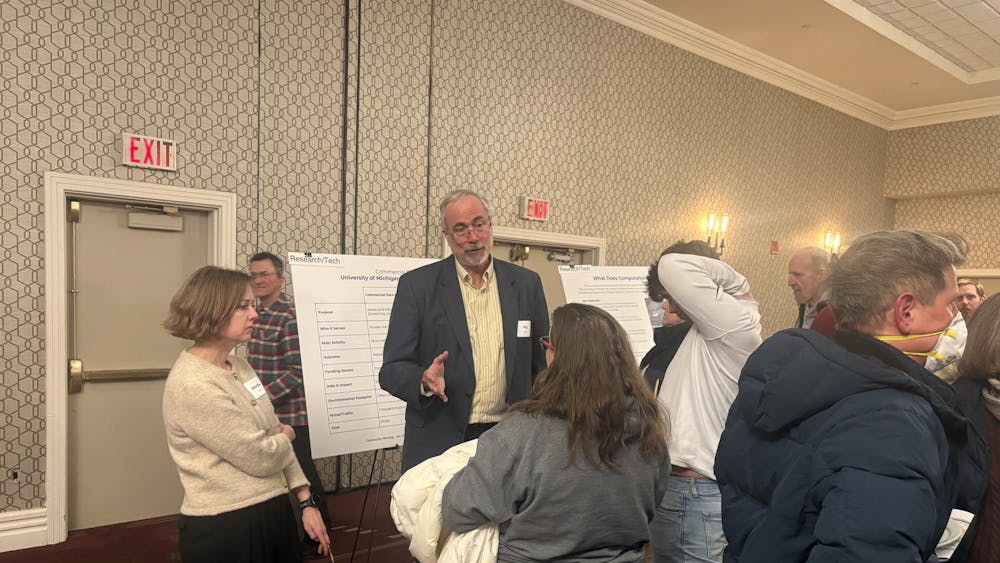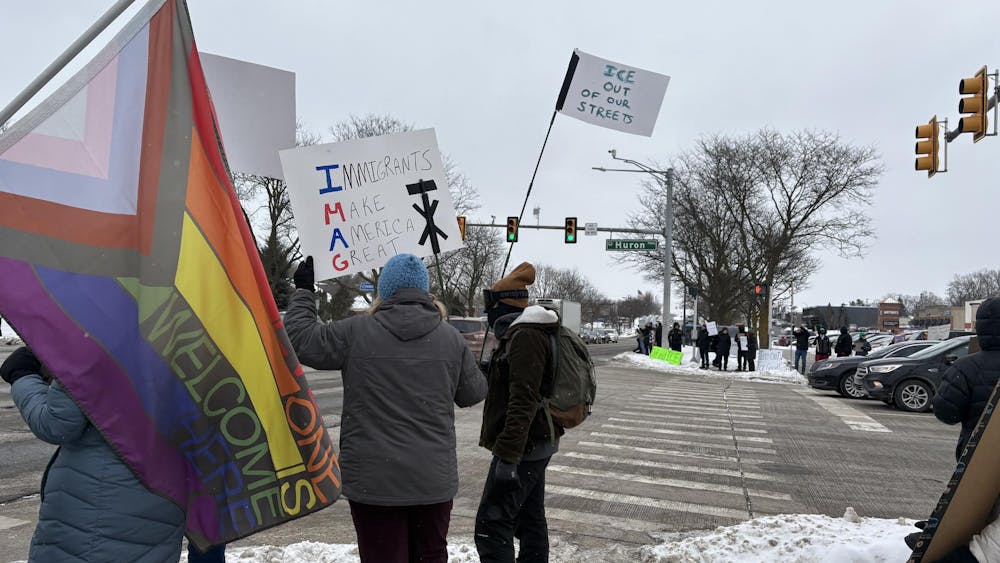“No Strings Attached: Barriers to Receiving Help,” held Oct. 3, was an interactive discussion hosted by Eastern Michigan University’s Women’s Resource Center Program Coordinator Jess Klein in the Student Center. The focus of the event was to challenge judgmental language and thoughts people use or have of those affected by domestic violence.
The no strings attached challenge activity involved volunteers who were assigned roles and strings connected to the victim in order to understand their perspective. When each person stated their lack of support, one-by-one a string was dropped, leaving the victim to feel out of options.
When someone is in an abusive situation, one has to be mindful of the barriers that may prevent the person from leaving unharmed. Financial control, disability, language, location tracking and children are major barriers that are used to the perpetrator’s advantage.
Klein realized just how much language is a barrier in domestic violence during an internship with First Step in Washtenaw County when she was 18 years old.
“This woman came from Texas straight to Michigan, as far away from her abuser as possible but she didn’t speak a word of English,” Klein said. “So she brought her two children with her but her older of the two was 9 years old. I would ask him the question, he would translate to his mom and she’d translate back. It was heartbreaking.”
Reported violence in the lesbian, gay, bisexual and transgender community has also risen to 30 percent, mainly within lesbian and gay relationships. A couple of barriers they experience are the fear of being “outed,” and homophobia in shelters, but the continuous reporting of violence within this community is being acknowledged.
“In a LGBT relationship it happens at the same rate as heterosexual relationships, but I think the fact that it’s being reported more, I think that’s really awesome,” Klein said. “It shows that women in lesbian relationships or men in gay relationships are becoming comfortable with police officers enough to say ‘This is happening, this isn’t right.’ While it’s on the rise, it’s good that they’re feeling comfortable to report.”
On the other side, male victims are less likely to report abuse because of a perceived “lack of masculinity,” and are overlooked because the resources are mainly available for women. According to domesticviolencestatistics.org, 40 percent of victims of severe, physical domestic violence were men in 2010. Luckily, the Ypsilanti Safe House is one of the few shelters that accept men.
The topic of the 2009 Rihanna/Chris Brown scandal was presented as a prime example of the path of a victim, but on a larger pedestal. In her interview on Oprah’s Next Chapter, Rihanna openly admitted that she still loved him and felt protective, even though she was left humiliated and confused for all to watch.
“So it’s hard for me to pay attention to my mind and figuring things out because now it became a circus and I felt protective,” Rihanna said. “I felt like the only person they hate right now is him. I felt like he made that mistake because he needed help, and who’s gonna help him? Nobody is gonna say he needs help, everybody is gonna say he’s a monster.”
While she understands Rhianna’s reasoning, Klein feels that the star has a platform to use to make an impact in the lives of the confused and abused.
“That makes me angry,” Klein said. “That makes me angry at her in so many ways because she can be such a positive role model. She has that chance, but on the other hand she’s still a survivor of domestic violence. She’s a human being, she is a classic victim.”
If you or someone you know is experiencing domestic abuse, contact the Ypsilanti Safe House 24/7 helpline 734-995-5444 or for resources visit EMU’s Women’s Resource Center in room 356 of the Student Center.









